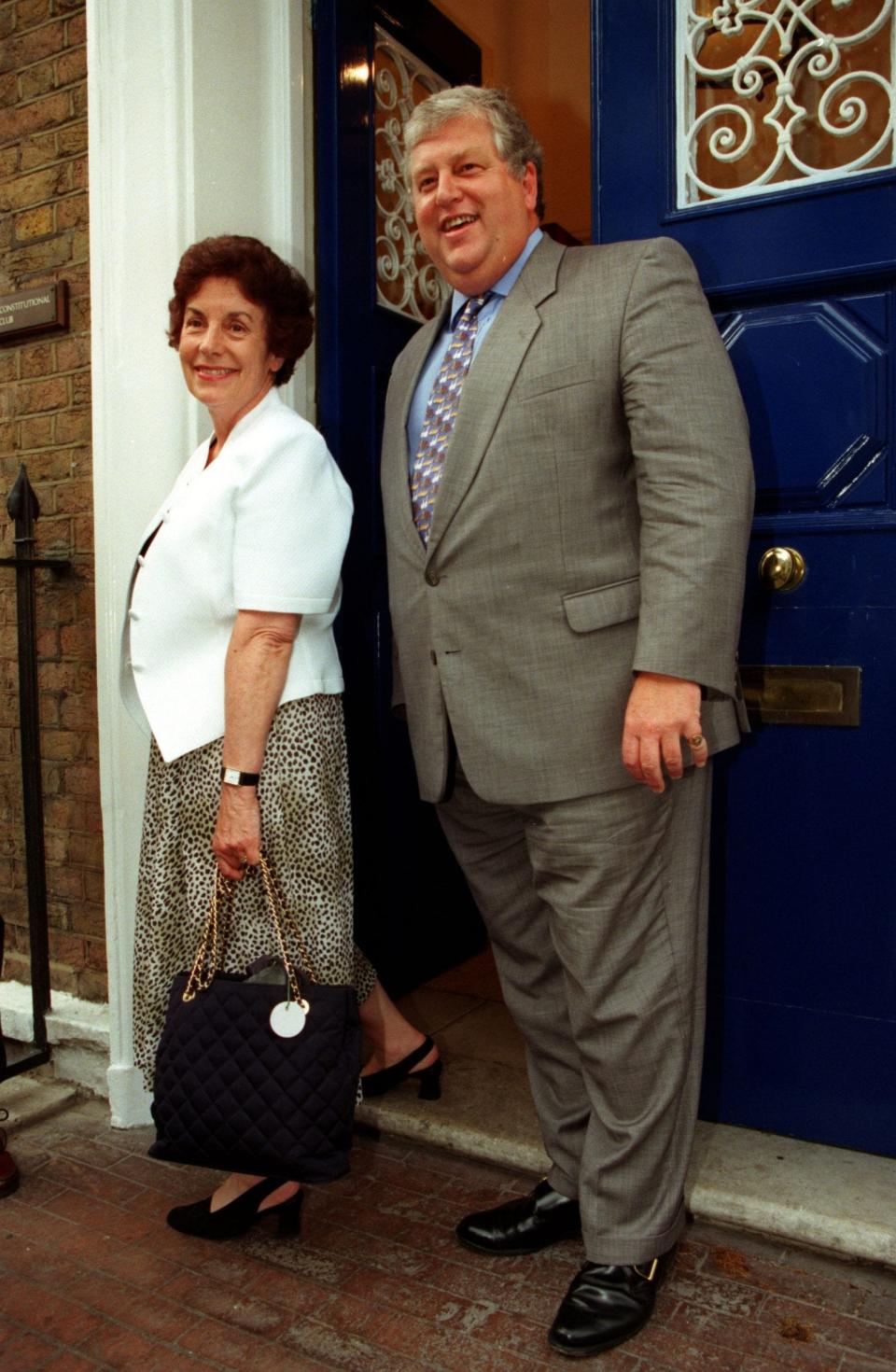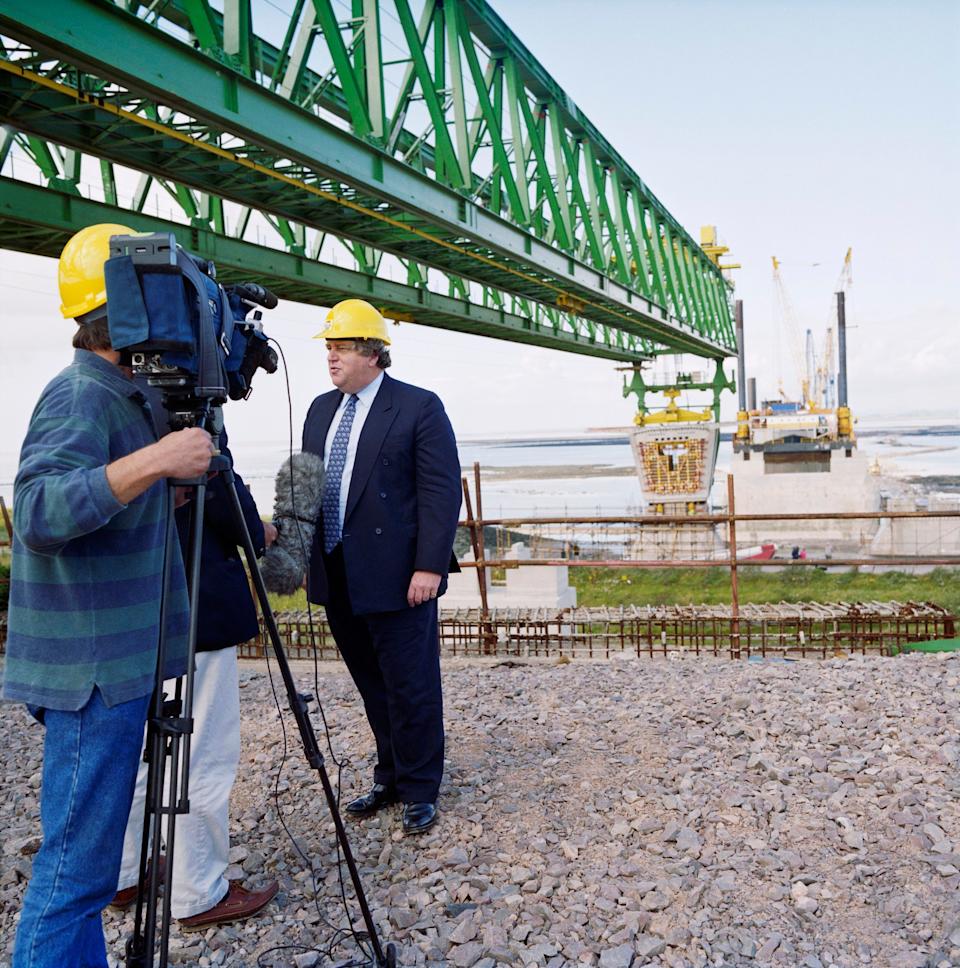Robert Key, amiable Tory MP who championed Salisbury and took up the cause of haemophiliacs who had contracted HIV – obituary

Robert Key, who has died aged 77, was Conservative MP for Salisbury for 27 years; he was a junior minister for the final weeks of Margaret Thatcher’s premiership and for four years under John Major, ultimately as Minister for Roads and Traffic.
Before entering politics, he taught economics successfully to the future Chancellor Alistair Darling at Loretto, and less so to Mark Thatcher, at Harrow.
Tiggerish and amiable, Key shared the physical bulk of the Kent and England cricketer of the same name. At the Department of Transport, his colleague Steve Norris christened him “the Colossus of Roads”.
His election for Salisbury gave him Edward Heath as a constituent. Key served as his political secretary for a year before breaking off the arrangement, reckoning that Heath’s judgment was clouded by his personal animosity toward Mrs Thatcher. When she appointed Key an environment minister in October 1990, Heath was heard to mutter: “Poor sod.”
Key was well to the Right on defence, which was fortunate as his constituency not only had a strong Army presence but included the Porton Down chemical warfare establishment and the RAF’s test airfield at Boscombe Down.
It also included Stonehenge. Key disdained the hippie convoys intent on celebrating the solstice, calling for the Army to be brought in to protect the locals.

Arriving at Westminster just as the Aids pandemic was breaking, he took up the cause of its victims and, especially, the plight of haemophiliacs given tainted blood transfusions. He chaired the all-party Aids group, was vice-president of the Haemophilia Society, and prior to joining the government served on the General Medical Council.
The son of a bishop, Key accepted female clergy, wanted a workplace crèche in the Commons and opposed caning. But he sought tighter restrictions on abortion (while supporting the morning-after pill), tough action against squatters, and the return of conscription. He opposed the War Crimes Bill, and was firmly against joining the euro.
Simon Robert Key was born in Plymouth on April 22 1945, the son of Maurice Key, later Bishop of Sherborne and of Truro, and the former Joan Dence.
Aged 10, he was on a prep school walk along Swanage beach when he and six friends discovered an old wartime mine. It detonated, and only Key, who sustained injuries to his back, and one other boy survived.
He attended Salisbury Cathedral School – singing in the choir with his future colleague Michael Mates – and then Sherborne School.
Key read Economics at Clare College, Cambridge, staying on to qualify as a teacher. From 1967 to 1969 he taught in Edinburgh at Loretto, after which he was a master at Harrow for 14 years until his election to Parliament. While at Harrow he was a governor of several state schools, and the special school at Great Ormond Street Hospital.
He joined the Conservative Party during the miners’ dispute of 1974 after seeing their leader Mick McGahey confront Heath on television, and in 1979 contested Holborn and St Pancras South. He chaired Harrow Central Conservatives in 1980-82, and served on the executive of the party’s National Union.
In 1982 Key was selected for Salisbury in place of the retiring Sir Michael Hamilton, ahead of the future Cabinet ministers Michael Howard and Peter Lilley. “Half the selection committee had been confirmed by my father,” he explained.
At the 1983 election, he took the seat with a 7,174 majority over a Liberal – reviving the custom of singing a victory song of the Wiltshire Regiment in the local dialect.

At Westminster, he was unsurprisingly put on the Education Select Committee. From 1984 to 1987 he also chaired the Parliamentary Council for Education in the Commonwealth, and until Mrs Thatcher pulled Britain out, was “the last British national commissioner for Unesco”.
In 1985 Key became a PPS, first to the energy minister Alick Buchanan-Smith, then from 1987 to Chris Patten, Overseas Development Minister and later Environment Secretary.
He was thus well-placed when, in October 1990, the resignation of the junior employment minister Patrick Nicholls over a drink-driving charge forced Mrs Thatcher into a mini-reshuffle. Staying with Patten, Key became Minister for Local Government and Inner Cities.
Within a month, Michael Heseltine challenged for the leadership. Key supported Mrs Thatcher, saying that neither Heseltine nor Major had the qualities to deal with a difficult economy, the complicated situation in Europe and the crisis in the Gulf. Despite this, the victorious Major kept him on.
At the DoE, Key set up an Inner Cities Religious Council in 1991 to help defuse tensions, and was given special responsibility for Liverpool. He got off on the wrong foot by claiming that there were 7,000 Liverpudlians drawing the dole in Bournemouth. But having spent time in the city, “my perception of Liverpool changed”, and he went on to tour America with the Liverpool Philharmonic Orchestra and Merseyside Development Corporation to drum up investment.
After the 1992 election, Major moved Key to what would be his favourite job, at David Mellor’s new Department of National Heritage. When Mellor was forced to resign soon after, Key competently handled the interregnum until Peter Brooke returned to the government to replace him.
Key visited Windsor Castle with Brooke that November to see the extent of its fire damage. He announced that the National Lottery would have a £1 million weekly prize. And at the 1993 Cannes Film Festival he put his officials on “bimbo alert” to make sure he was not photographed with porn stars.
He spent his final year in government at John MacGregor’s Department of Transport. Key launched a crackdown on speeding, but made clear his love for cars – starting with his first, a Sunbeam Rapier convertible. He categorised the railways as “environmentally unfriendly”, having “carved up the countryside” and “spewed out polluting gases”.

Key lost his job in July 1994. He was felt to have promoted MacGregor’s motorway “cones hotline” too enthusiastically, but had also reputedly told Major he would resign if not promoted.
After a brief spell on the Health Select Committee, he was appointed to the Defence Committee, serving from 1995 to 1997, and again between 2005 and 2010.
Re-elected comfortably in 1997 as colleagues around him lost their seats, Key was appointed a front-bench defence spokesman by William Hague. He pressed for a new inquiry into the Chinook crash on the Mull of Kintyre (the pilots were eventually cleared of negligence); complained that a constituent, an adulterous army officer, was being “tried twice for the same crime”; and insisted that emissions from experiments at Porton Down had been “harmless organisms”.
In 2001 Iain Duncan Smith made Key shadow minister for Science and Energy, and a year later for International Development. He left the front bench in 2003, and in 2004-05 chaired the Select Committee on Information.
Key was selected to stand again at the 2010 election but decided to retire, telling constituency workers the osteoarthritis which had forced him to have a spinal operation three years before meant his health was bound to get worse. “It would be unfair to Salisbury, unfair to the Conservative Party and unfair to my family to stand again, knowing the risk I would be taking.”
He was a member of the General Synod of the Church of England from 2005 to 2015. He chaired the governors of Salisbury Cathedral School, was a lay canon of the cathedral, and chaired its Magna Carta 2015 Project. He was also a dedicated choral singer, from 1975 a tenor with the Academy of St Martin-in-the-Fields.
He was founder chairman of the Alice Trust for Autistic Children, chairman of Wessex Archaeology from 2011 to 2013, a trustee of the Trussell Trust, and a freeman of the City of Salisbury.
Robert Key married Susan Irvine in 1968. They had two sons (one of whom lived only a few days) and two daughters.
Robert Key, born April 22 1945, died February 6 2023

 Yahoo Movies
Yahoo Movies 
